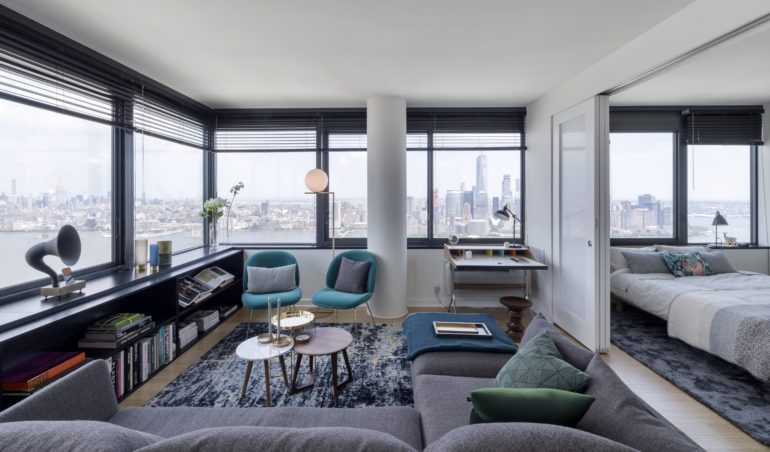Jersey City Urby residents who enroll in Airbnb’s Friendly Buildings Program can rent out their entire apartments or a private room for up to 30 days per year.
By Joshua Burd
It has only been a few months since the start of a partnership between Airbnb and the owners of Jersey City Urby, but all signs point to an arrangement that will be mutually beneficial.

“(David Barry) and his team have been great partners for us and really forward-thinking about how they can embrace the sharing economy,” said Alex Ward, Airbnb’s special projects manager. “Rather than try to take down folks that might want to share their home, they’re actually doing it in a very logical and thoughtful way.”
After all, that is a key principle of Airbnb’s Friendly Buildings Program, which now counts the 69-story Jersey City Urby among its participants. Ward said the program was developed “because of essentially four needs that we saw consistently” from multifamily stakeholders: transparency as to who was using the platform, control over the process, the potential for revenue sharing and the need for insurance.
The revenue sharing option is meant to create additional upside for stakeholders, which can include landlords, developers, condominium boards and property management firms, he said. Airbnb typically recommends that between 5 percent and 15 percent go back to the landlord, either as a sort of commission or as funds that can be reinvested and “improve quality of life for everyone in the community,” such as by upgrading other amenities and common spaces.
RELATED: Growth of sharing economy creating new opportunities for developers to distinguish their projects
“We work directly with that community manager, developer or landlord or condo or (homeowners association) board to try and think through with them what would be the most valuable landing place for those funds for the entire community,” Ward said. “Even if you’re not hosting, there is a benefit for you to be part of that community.”

The Friendly Buildings Program insurance policy covers not only the units that are used for hosting on Airbnb, but also common areas, with up to $1 million in coverage for both property damage and third-party liability. And for those that take part in the program, Airbnb has created a customizable dashboard that allows them to access all four features.
The company launched the program in the Bay Area around spring 2016 and has been expanding it to additional cities and countries. Additional growth could depend on local regulations, which is a familiar theme for Airbnb and other disruptive technology platforms that have experienced rapid growth.
The company recently lobbied for a bill that would allow it to collect and remit taxes on its short-term rentals throughout New Jersey, but Gov. Chris Christie vetoed the bill in July. Andrew Kalloch, a public policy attorney with Airbnb, said the company anticipates the bill will be reintroduced at the beginning of the next legislative session.










